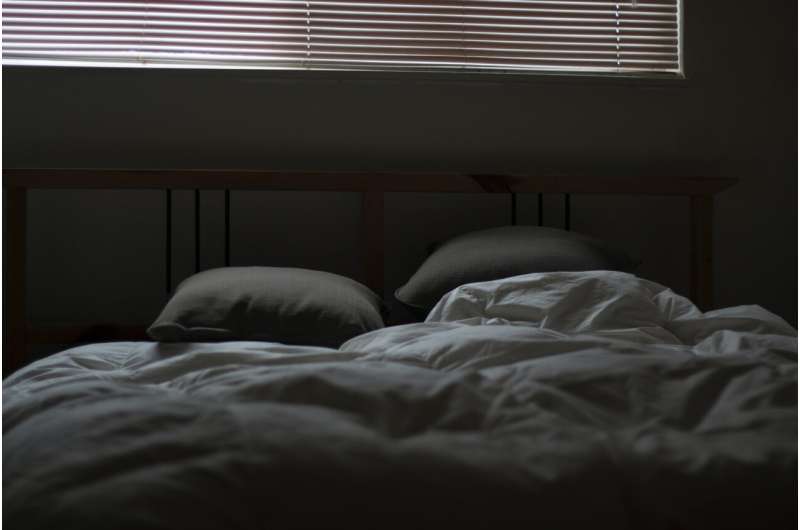Credit: Unsplash/CC0 Public Domain
The issue of sleep deprivation has gone beyond the counting of sheep and into the scientific domain, as European researchers set up 'sleep labs' to study the biomedical and sociological factors keeping us awake at night.
Sleep laboratories were set up as part of the SLEEP RESTRICTION ('The Biomedical and Sociological Effects of Sleep Restriction') project, which has studied the effects of modern (often hectic) lifestyles on sleep quality.
The EU-backed researchers not only looked at the physical and mental state of the sleep deprived, but also the sociological aspects to determine how this can affect human behaviour and health.
The project, led by the University of Helsinki's Dr Tarja Porkka Heiskanen, used various sleep restriction experiments within the controlled conditions of their sleep laboratories. In one study, the sleeping patterns of young, healthy men were restricted to just four hours per night over a period of five days, followed by two nights of normal sleep. The results concluded that sleep restriction induced changes in the body's energy metabolism, immune system and autonomic nervous system. It also revealed that sleep curtailment could cause inflammation and oxidative stress, and consequently trigger mechanisms involved in cardiovascular disease.
The study also investigated a further 97 people to determine the impact of sleep disorders on the metabolic, endocrine and immune functions. Project scientists conducted experiments with patients who experienced various sleep disorders, including obstructive sleep apnea, restless legs syndrome and patients with primary insomnia.
They discovered that the degree of disturbance was negatively related to measures of sleep continuity. When they studied the sociological aspect of sleep deprivation, they found that the quantitative analysis revealed a connection between disadvantaged social status and high levels of sleep problems. Long working hours and long commutes to work were also associated with shorter sleeps among those studied.
The research carried out within the project demonstrated that in Italy, the burden of care tends to fall on the shoulders of female family members. Interviews revealed that women caring for young children and adult children living at home slept poorly. However, the highest levels of sleep disturbance were found among women looking after elderly, frail relatives.
A survey of middle-aged British women also revealed that women with a lower socio-economic status, and particularly women with lower levels of education, are more likely to suffer from disturbed sleep.
What is evident is that everyone has experienced fatigue, bad mood, or lack of focus that so often follows a night of poor sleep. Although this lack of sleep-especially on a regular basis-can be associated with long-term health consequences, including chronic medical conditions like diabetes, high blood pressure, and heart disease, and that these conditions may lead to a shortened life expectancy. Additional research studies show that habitually sleeping more than nine hours is also associated with poor health.
Some of these issues will be addressed at the 'European Basic and Clinical Sleep Research Towards Horizon 2020' on May 3 in Brussels. This meeting is part of the program for the Month of the Brain, that will be organised in May 2013 at the initiative of the DG Research and Innovation (Health Directorate) of the EU Commission. During this event, several present and past ESRS Board members and officers will address EU officers from different Commissions and DGs on the ongoing activities and goals of the main European Sleep Research and Sleep Medicine Networks, in terms of the impact on science, health, education and work/road safety. In particular, the need for a specific call on sleep in the forthcoming framework programme Horizon 2020 will be discussed.
More information: SLEEP RESTRICTION www.sleep.fi/frontpage.asp?route=3402.3455
Provided by CORDIS



















